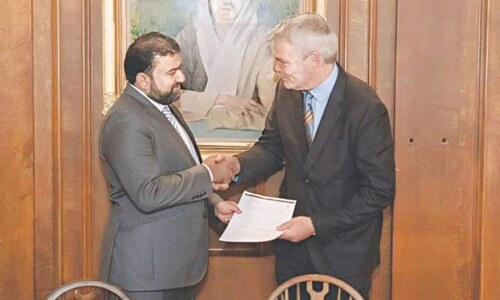RIO DE JANEIRO: Brazil’s National Truth Commission on Wednesday delivered a damning report on the killings, disappearances and acts of torture committed by government agents during the country’s 1964-1985 military dictatorship. It called for those responsible to face prosecution.
The 2,000-page report was delivered to President Dilma Rousseff, a former Marxist guerrilla who endured harsh torture and a long imprisonment in the early 1970s.
Known for her steely demeanour, Rousseff broke down in her speech at the report’s launch ceremony in the capital, Brasilia. Investigators spent nearly three years combing through archives, hospital and morgue records and questioning victims, their families as well as alleged perpetrators.
The document represents Brazil’s most sweeping attempt yet to come to terms with the human rights abuses committed under the country’s military regime.
 |
| Brazilian President Dilma Rousseff cries while delivering a speech at a ceremony to present the final report of the National Truth Commission.—AFP |
“Under the military dictatorship, repression and the elimination of political opposition became the policy of the state, conceived and implemented based on decisions by the president of the republic and military ministers,” the report states.
The commission “therefore totally rejects the explanation offered up until today that the serious violations of human rights constituted a few isolated acts or excesses resulting from the zeal of a few soldiers”.
The seven-member commission, created by Congress and sworn in by Rousseff in 2011, has no prosecutorial powers, and a 1979 amnesty law passed by the military regime prevents those responsible from being tried and punished. The report calls for the repeal of the amnesty. However, the Supreme Court in 2010 rejected a request by the Brazilian Bar Association to modify the amnesty law so that those who directly carried out killings and torture could be prosecuted.
The work exhaustively details the military’s “systematic practice” of arbitrary detentions and torture, as well as executions, forced disappearances and the hiding of bodies. It documents 191 killings and 210 disappearances committed by military authorities, as well as 33 cases of people who were disappeared and whose remains were later discovered.
“These numbers certainly don’t correspond to the total of deaths and disappearances but only to cases it was possible to prove,” the report said.
Published in Dawn, December 11th, 2014










































Dear visitor, the comments section is undergoing an overhaul and will return soon.